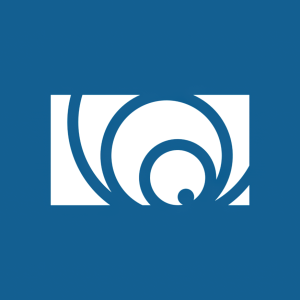Vistagen Advances Intellectual Property Program to Expand Patent Protection for PH94B to Include Treatment of Adjustment Disorder
Vistagen (Nasdaq: VTGN) recently announced new patent filings with the U.S. Patent and Trademark Office and other countries to enhance commercial protection for its lead drug candidate, PH94B, aimed at treating adjustment disorder (AjD). This move follows a similar patent protection obtained for PH94B regarding social anxiety disorder (SAD) and PH10 for major depressive disorder (MDD). Additionally, the pending acquisition of Pherin Pharmaceuticals will expand Vistagen's patent portfolio and pipeline, including new drug candidates targeting various mental health disorders.
- New patent filings bolster global exclusivity for PH94B in treating adjustment disorder.
- Pending acquisition of Pherin Pharmaceuticals will enhance Vistagen's pipeline and intellectual property rights.
- None.
Insights
Analyzing...
Vistagen’s recent patent filings in the
These new filings are intended to provide a global exclusivity platform for PH94B in AjD, similar to the Company’s patent protection for PH94B for the treatment of social anxiety disorder (SAD), and for its other late-clinical stage product candidate, PH10, for the treatment of major depressive disorder (MDD).
Vistagen recently announced its pending acquisition of
About Vistagen
Vistagen (Nasdaq: VTGN) is a late clinical-stage biopharmaceutical company aiming to transform the treatment landscape for individuals living with anxiety, depression and other CNS disorders. The Company is advancing therapeutics with the potential to be faster-acting, and with fewer side effects and safety concerns, than those that are currently available. Vistagen’s clinical-stage candidates are targeting multiple types of anxiety and depression. PH94B and PH10 belong to a new class of drugs known as pherines, which are odorless and tasteless investigational neuroactive steroids designed with a novel rapid-onset mechanism of action that activates chemosensory neurons in the nasal passages and can impact the olfactory-amygdala neural circuits without systemic uptake or direct activity on CNS neurons in the brain. Vistagen is passionate about transforming mental health care and redefining what is possible in the treatment of anxiety and depression. Connect at www.Vistagen.com.
About Adjustment Disorder
Adjustment disorder (AjD) refers to a maladaptive emotional or behavioral response to an identifiable stressor. AjD occurs within three months of exposure to the stressor as evidenced by marked distress that is out of proportion to the socially or culturally expected reactions to the stressor, or that represents significant impairment in social, occupational or other important areas of daily functioning. Current pharmacological treatments for AjD vary widely and include antidepressants, benzodiazepines, buspirone and natural products such as cannabidiol. Vistagen’s ongoing exploratory Phase 2A clinical program for PH94B in AjD is focused on adults experiencing AjD with anxiety (AjDA). The randomized, double-blind, placebo-controlled study in AjDA in adults involves daily use of PH94B administered four times per day in a real-world outpatient setting for 28 days. Vistagen expects top line results from the study in Q1 2023.
Forward Looking Statements
This press release contains certain forward-looking statements within the meaning of the federal securities laws. These forward-looking statements involve known and unknown risks that are difficult to predict and include all matters that are not historical facts. In some cases, you can identify forward-looking statements by the use of words such as “may,” “could,” “expect,” “project,” “outlook,” “strategy,” “intend,” “plan,” “seek,” “anticipate,” “believe,” “estimate,” “predict,” “potential,” “strive,” “goal,” “continue,” “likely,” “will,” “would” and variations of these terms and similar expressions, or the negative of these terms or similar expressions. Such forward-looking statements are necessarily based upon estimates and assumptions that, while considered reasonable by Vistagen and its management, are inherently uncertain. As with all pharmaceutical products, there are substantial risks and uncertainties in the process of development and commercialization and actual results or developments may differ materially from those projected or implied in these forward-looking statements. Among other things, there can be no guarantee that: the Company will secure additional patent protection or any other form of commercial protection for PH94B, including for the treatment of adjustment disorder, or any of the Company’s other drug candidates; any of the Company’s drug candidates, including PH94B and/or PH10, or any other drug candidate will successfully complete ongoing or future clinical trials, receive regulatory approval or be commercially successful; the Company and Pherin will successfully satisfy the closing conditions set forth in their merger agreement, including approval of the proposed acquisition by Pherin’s stockholders; Vistagen’s ability to realize the anticipated benefits of the proposed acquisition of Pherin, including the possibility that the expected benefits will not be realized or will not be realized within the expected time period; or unknown liabilities of Pherin that may or may not be within Vistagen’s control. Certain of these risks are more fully discussed in the section entitled "Risk Factors" in the Company’s most recent Annual Report on Form 10-K for the fiscal year ended
View source version on businesswire.com: https://www.businesswire.com/news/home/20221230005022/en/
Investors
Vice President, Investor Relations
(650) 577-3617
mflather@vistagen.com
Media
SKDK
nhitchings@skdknick.com
Source: Vistagen







